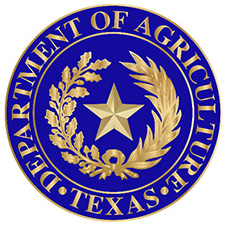What Does ‘Rural Prosperity’ Mean to Members of Congress?
(AG Insider) Among the political class, how to slice-and-dice complex issues with buzzwords, messaging, and slogans comes with the territory. Every public official, candidate for office, policy wonk, journalist, advocate, organizer, or campaign worker has to sort through the rhetoric and figure out “what resonates” with voters and the public to achieve their desired outcome.
And when it comes to “what the federal government should do for rural America,” there is no term more popular these days than “rural prosperity.”
What is meant by rural prosperity, though, can be anything from supporting catfish inspection services in Mississippi to renovating a rural airport runway in Idaho. It can mean regulating Big Fossil Fuels to some people, and it can mean banning solar farms to others.
A recent Congressional Roundtable, “Building Inclusive Prosperity for Rural America,” was a literal showcase of views, distinctions, bipartisan agreements, and policy priorities among U.S. House members and rural economy experts. It’s worth a listen/watch if you have 100 minutes to kill while you’re on hold for problems with your cell phone service provider, are canning tomatoes, or are waiting between events at your county fair.
America’s Farm Report readers know I can nerd out on these DC discussions, and I am indeed chasing a couple of AFR stories as follow-ups to the ideas presented at the event. But what I most noticed is a serious partisan divide when it comes to the “rural prosperity agenda.”
The Republican agenda is quite simple and straightforward. It has been so for years, and can be best summed up by then-President Trump’s 2017 “Executive Order on Promoting Agriculture and Rural Prosperity in America.”
The GOP supports agriculture and energy production (they like to say “dominance,” a lot too), and infrastructure when it supports producers of agricultural goods and energy, especially fossil fuels. To them, rural equals agriculture and energy. Full stop.
The Democrats, on the other hand, have a much wider and more broad-based definition of rural prosperity in mind. “Inclusive” and “equitable” are their touchstones. The Dems talk about better governance, more resources and staffing, climate change, job creation through innovation, housing, health care, and making sure no rural communities are left behind.
Representative Angie Craig (D-MN), who chaired the roundtable, has introduced the “Rural Prosperity Act,” as an example of accomplishing these broader goals. The bill is bipartisan, and would establish an Office of Rural Prosperity and Chief Rural Advisor to the White House. Perhaps that’s common ground to build on for more necessary rural investments and resources.
What is clear to me, politically at least, is that part of the reason that Republicans have such an advantage in many rural places is that they have a clear and coherent message about rural issues. You could argue that their agenda is based on flawed or cherry-picked analysis, excludes millions of rural people, and fails to address issues of economic disparity and racial injustice. You could even argue that many Republicans are stingy when it comes to delivering money to rural communities. I certainly do.
But watching Republican leaders in DC regurgitate their talking points and disciplined attacks on “urban Democrats at war with rural America” is a key feature of our democracy right now. They can just fold the magic words like “rural prosperity” and “sustainability” into their political arsenal. The Democrats, on the other hand, have about as clear a rural message as the Mississippi River during a 500-year flood.
One More Thing: The Toll of Farming
Lastly, I wanted to highlight a heartbreaking and painful story about an Iowa farmer who touched AFR in a big way.
In retelling of the events from the 1980s’ farm crisis, “When Ingolf’s Question Went Unanswered,” explains what happened in the corner of rural America when then-Vice-President and 1988 Republican presidential candidate George H.W. Bush refused to answer a question about federal agriculture policy and foreclosures from her neighbor. The Secret Service ran the farmer out of the event, and he later killed himself as pressures from the farm economy mounted.
This important story was accompanied by another important story about farmer suicide, “Aging Farmers Are at Greater Risk of Suicide, Study Finds.”
On this note, please remember, if you or someone you know is experiencing a mental-health crisis, help is available by calling or texting 988.











